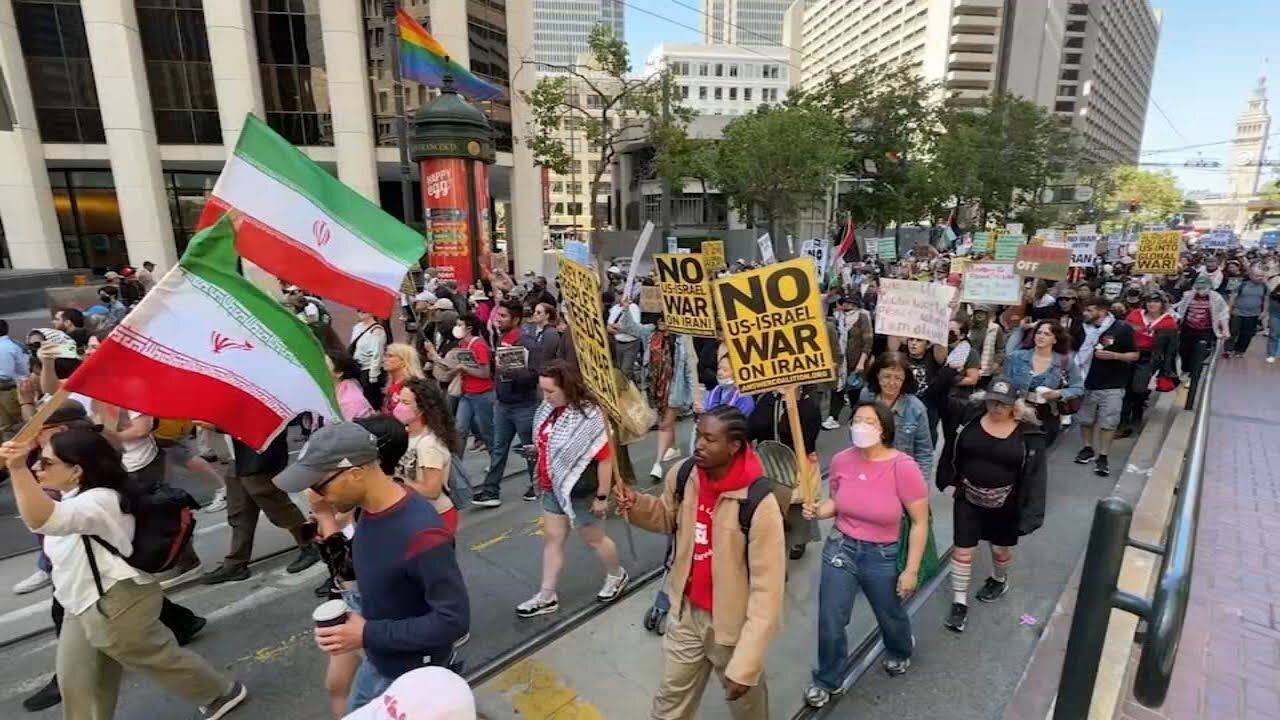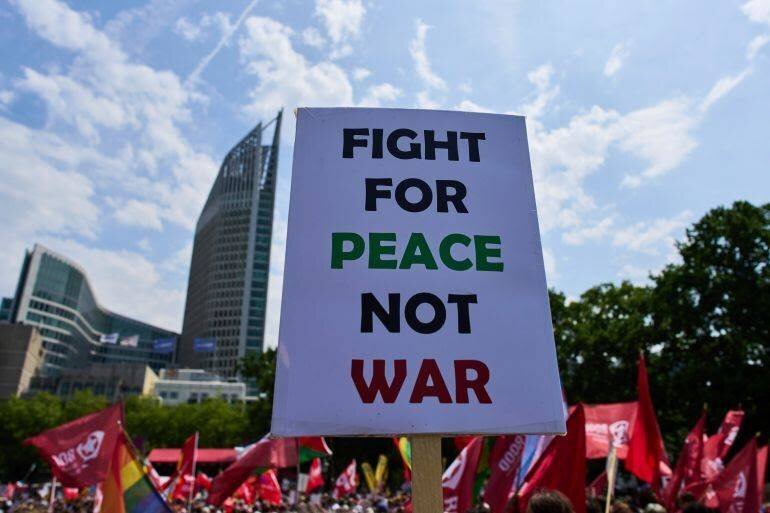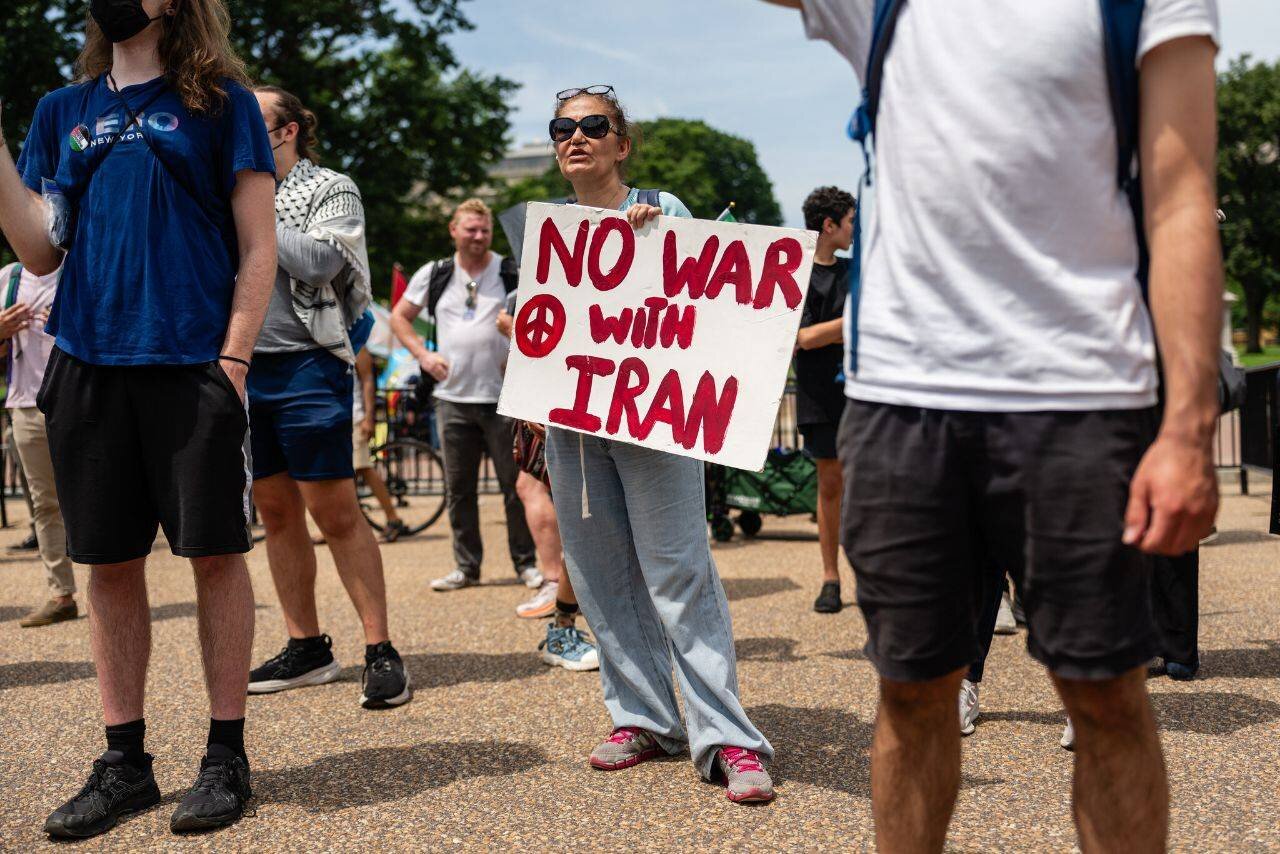World says no to war: Global protests erupt after U.S., Israel strikes on Iran

TEHRAN - A wave of mass protests has swept across many cities worldwide following the coordinated U.S. and Israeli airstrikes on Iran’s nuclear facilities on June 22 and 23.
The strikes, which targeted key Iranian nuclear sites of Fordow, Natanz, and Isfahan, have sparked outrage among civil society groups, peace activists, and anti-war organizations, raising alarm over the risk of wider regional conflict.
International mobilization: A call for peace and restraint
In Europe, some of the largest demonstrations took place. In The Hague, Netherlands, an estimated 5,000 demonstrators—originally assembled for an anti-NATO protest—shifted their focus to condemn the U.S. attacks on Iran.

People attend a demonstration before the NATO summit in The Hague, Netherlands, June 22, 2025
Protestors criticized the continued militarization of international diplomacy and called for NATO’s dissolution, warning of the catastrophic consequences of escalation in West Asia.
In Dublin, Ireland, dozens of demonstrators—comprising Iranian expatriates, Irish peace groups, and student activists—gathered in O’Connell Square. Chants of “Hands Off Iran” and “Free Palestine” echoed through the streets, highlighting widespread disapproval of Israeli aggression and perceived Western complicity.
In the United States, more than a dozen cities witnessed coordinated protests. In San Francisco, several hundred gathered at Embarcadero Plaza, denouncing what they called “illegal aggression” by the U.S. government and accusing Washington of committing war crimes.
Protesters held signs reading “No More Blood for Oil” and “Stop Bombing Iran,” while speakers from anti-war organizations demanded an immediate cessation of U.S. military involvement in the region.
Similar scenes unfolded in Salt Lake City, where nearly 200 protesters rallied outside the Utah State Capitol. Organized by local leftist student groups, demonstrators warned against the path to a wider war, urging lawmakers to reject further military escalation.
New York City saw hundreds march through Manhattan, waving Palestinian flags and chanting anti-war slogans. “Stop the war on Iran,” read placards carried by demonstrators, many of whom linked the attacks to the ongoing Israeli military campaign in Gaza. Outside the White House in Washington D.C., protesters assembled to condemn the Trump administration’s role in what they described as a reckless and unlawful act of war.
Asia: Solidarity and outrage
In West Asia and other parts of the vast continent, demonstrators expressed solidarity with Iran and strong opposition to both the Israeli strikes and U.S. intervention. In Karachi, Pakistan, protesters carried portraits of the Leader of the Islamic Revolution Ayatollah Seyyed Ali Khamenei while standing on posters of U.S. President Donald Trump in a symbolic act of defiance. Similar rallies in Beirut and other Arab capitals featured flags of Iran, Palestine, and Hezbollah, along with calls for armed resistance and regional unity against what was widely described as Western imperialism.

Smaller demonstrations were also reported in Tokyo, Athens, Manila, and Jakarta, reflecting the global reach of anti-war sentiment.
NGO coordination: Advocacy beyond the streets
Alongside street protests, a wide network of anti-Israel and anti-war NGOs launched a series of advocacy campaigns to demand an end to hostilities. Organizations such as CODEPINK, Palestine Solidarity Campaign (PSC), and the Adalah Justice Project coordinated social media drives, petitions, and congressional outreach.
Moreover, CODEPINK activists in New York emphasized the use of U.S.-manufactured weapons in the bombings and linked them to domestic repression, calling on Americans to hold their government accountable.
In London, PSC rallied outside Parliament demanding the UK end arms sales to Israel. Meanwhile, the Adalah Justice Project urged constituents to pressure U.S. lawmakers to reject further military aid and weapons exports to both Israel and Saudi Arabia.
Escalation and regional fallout
The recent American airstrikes marked one of the most significant escalations in U.S.-Iranian tensions since the early 2020s. While U.S. officials claimed the attacks delivered “monumental damage” to Iran’s nuclear infrastructure, independent analysts noted that the facilities’ underground construction likely mitigated the actual impact.
Iranian officials, however, condemned the strikes as flagrant violations of international law and vowed retaliation. For part of its response, the Islamic Revolutionary Guard Corps (IRGC) launched a wave of missile attacks targeting key Israeli sites, including Ben Gurion Airport.
In addition, regional states including Saudi Arabia, Qatar, Oman, and the UAE issued statements urging restraint, while Russia condemned the U.S. attacks and reaffirmed its support for Iran during an emergency diplomatic meeting in Moscow.
The global reaction to the strikes has underscored deep public unease with renewed militarism in West Asia. With voices from across continents demanding diplomacy over war, the message is clear: the world is calling for de-escalation. As governments weigh their next moves, the groundswell of protest serves as a powerful reminder of the costs of conflict and the urgency of peace.
Leave a Comment